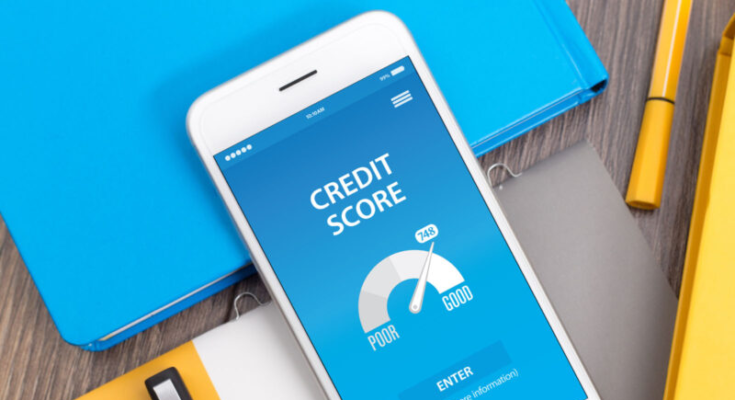Getting a Personal Loan seems simple. You apply, share your details, and wait for approval. But behind the scenes, there’s one number that plays a big part in what happens next – your credit score.
This three-digit number says a lot about how you’ve handled money in the past. Whether you paid your EMIs on time, used too much of your credit card, or applied for too many loans in a short span, all of it shows up in your score. So, if you’re planning to borrow money, whether it’s a small top-up or a Rs. 2 lakh Personal Loan, your credit score matters more than you think.
Boost Your Chances of Personal Loan Approval with a Better Credit Score
In this post, we’ll walk through how credit scores affect your chances of approval, why lenders care so much about them, and what you can do to improve your odds before your next Personal Loan eligibility check.
Understanding How Credit Score Works
Your credit score is built over time. Every time you borrow, pay off a loan, swipe your credit card, or skip a payment, it adds to your credit history.
That history then becomes the basis for your score. Most lenders in India look at your CIBIL score, which ranges between 300 and 900. The closer you are to 900, the better. A score of 700 and above is considered ideal and may help you in getting a Personal Loan on favourable terms.
Your payment habits, the total credit you’re using, how long you’ve had credit, and even how often you apply for new loans – all these factors count in calculating your CIBIL score.
The score also takes a hit when you miss payments. One delayed EMI might not seem like a big deal, but it affects your profile more than you realise. Multiple missed payments? That can pull your score down fast.
Why Do Lenders Look at Credit Scores Before Saying Yes?
Think of it from the lender’s point of view. They don’t know you personally. So, they rely on your credit score to judge how trustworthy you are as a borrower. If you’ve managed a previous credit well, you’re seen as low-risk. If your record shows delays or defaults, you’re seen as a high-risk person.
Let’s say you apply for a Rs. 2 lakh Personal Loan with a CIBIL score of 780. That puts you in a good position. Your application is likely to move faster. You may even get a better interest rate.
But if your score is closer to 600, you might still get the loan, but the terms won’t be as friendly. In short, your credit score decides not just if you’ll get the loan but how much it’ll cost to borrow.
How Much Credit Score is Enough for a Personal Loan?
There’s no one-size-fits-all answer, but most lenders are comfortable with scores above 700. If your score is 750 or more, you’re usually seen as a trustworthy borrower. Between 650 and 700, you’re in the middle zone. Below 650? It may get difficult.
That said, your score is only part of the story. Income, job stability, and existing debts also play a part. For instance, two people with the same score might get different results depending on how much they earn and how much they already owe.
During a Personal Loan eligibility check, the lender weighs all these details together. But having a strong score helps tilt things in your favour right from the start.
What If Your Score Isn’t Great?
Let’s say your credit score isn’t ideal, you are at 600. That doesn’t mean you should give up on applying, but it does mean you need to slow down and rethink your approach.
First, avoid applying to multiple lenders at once. Each application triggers a credit inquiry. If too many of those show up close together, lenders see you as someone urgently chasing credit. That can bring your score down even further.
Instead, start with a soft check. Some platforms let you do a Personal Loan eligibility check without it affecting your score. That gives you a clear idea of where you stand and what offers you could realistically expect.
If you’re not in a hurry, take a few months to fix your score before applying. Pay off any outstanding dues. Keep credit card usage low. Avoid skipping payments. Even six months of steady, responsible usage can improve your score enough to make a difference.
Sometimes, you might still qualify for a smaller amount like a Rs. 2 lakh Personal Loan, even with an average score, especially if your income is stable. But the terms may not be favourable. You can borrow what you need and focus on repaying it well. That, in turn, helps boost your score for the future.
Habits That Help Build and Maintain a Healthy Credit Score
Building a strong credit profile isn’t something you do overnight. But it’s also not as hard as it seems. Most of it comes down to being consistent and paying attention.
- Start with the basics. Pay your EMIs and credit card bills before the due date. Set reminders if you need to or use auto-debit to never miss a payment.
- Don’t max out your credit cards. If your credit limit is Rs. 1.2 lakh, try not to spend more than Rs. 35,000 to Rs. 40,000 in a month. Keeping usage below 30% makes a difference.
- Don’t close your oldest credit card just because you don’t use it much. That old account adds weight to your credit history. The longer your credit history, the more it helps your score.
- If you’re just starting to build credit, you could also explore secured credit cards backed by fixed deposits. Use them wisely and repay on time. Over time, that builds your score steadily.
- Lastly, don’t apply for every offer you see. Pick one option that fits your needs. Some apps, like Zype, even show you customised loan offers based on your credit profile and income, helping you apply more confidently.
Conclusion
Your credit score is more than just a number. It’s a signal to lenders that tells them how likely you are to repay. Also, whether you’re applying for a Rs. 2 lakh Personal Loan or something bigger, that number has a direct impact on what kind of loan you’ll get and what it’ll cost you.
So, if you’re planning to borrow, check your score first. Understand what affects it and give yourself a head start by building healthy credit habits before you apply. That one step can make the borrowing experience less stressful and a lot more rewarding.




